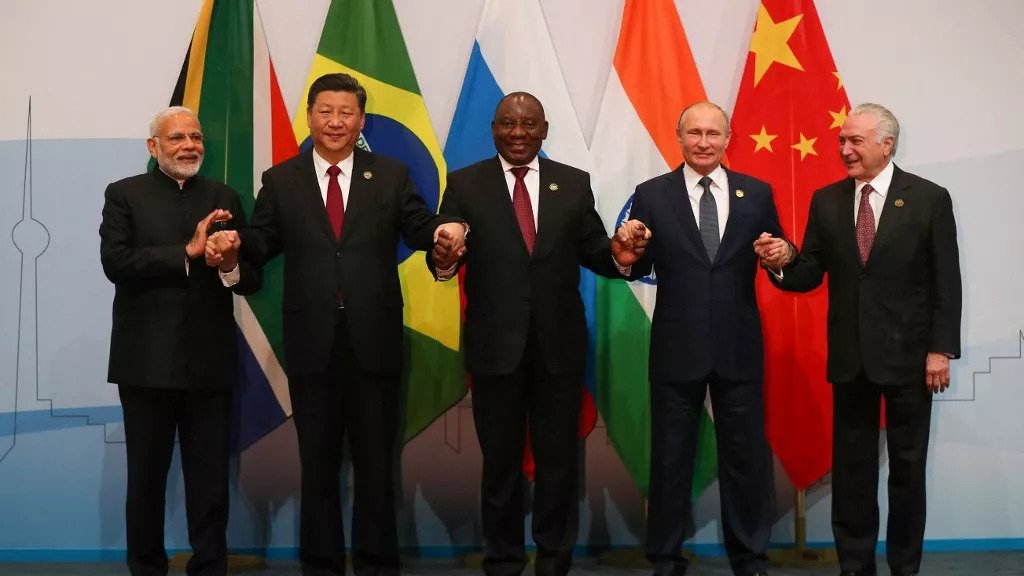

As the 15th edition of the BRICS summit approaches, the alliance should soon expand, with the arrival of several African countries in particular.
Made up of Brazil, Russia, India, China and South Africa, with a contribution reaching 31.5 % of the world’s gross domestic product (GDP) in 2023 against 30.7% for the G7, the BRICS are considered the current major emerging powers.
Anil Sookal, the South African ambassador to the BRICS confirmed on April 24, during an interview, that thirteen countries had officially submitted applications to join the group of emerging economies, specifying that this announced enlargement of the he organization will be at the heart of the debates at the next BRICS summit, scheduled for June 2 and 3, 2023 in Cape Town, South Africa.
For the moment only a few names of African countries wishing to join the BRICS have been revealed, among them Algeria, Egypt, Nigeria already a member of BRICS-MNA, Sudan and Zimbabwe. This enlargement aims to reinforce the importance of the economic alliance on the international scene.
A strong economic competitor
In 2014, the BRICS launched their own development bank to thwart the current global financial system established after the Second World War by the Bretton Woods agreements.
The economic giant has been demanding for several years a greater role in the bodies of global governance and the transition to a multipolar order. Despite a combined economy representing nearly 31.5% of global GDP and a population of 3.2 billion, the group has only 15% of the voting rights at the World Bank and the International Monetary Fund.
However, the potential addition of members among the new demands could undeniably reshape the global economic landscape and inherently change the dynamics of the group.
Thus, the idea of a BRICS+ raises concerns among the member nations about the dilution of their influence, particularly with regard to the allies of China, which has a GDP twice that of the other four BRICS countries combined, raising the question of Beijing’s possible dominance within the group.